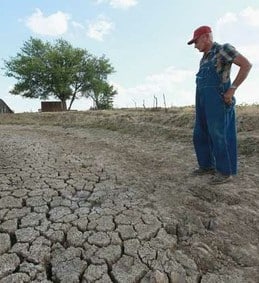

The British TV series Black Mirror, created by satirist Charlie Brooker, last year won the won the Best TV movie/mini-series award at the International Emmys. The show, which can be alarming in both its content and presentation, has struck a chord with viewers because its theme of unease with modern technology is something most everyone today can relate to.
Depictions of of a dystopian future are, of course, nothing new. One can point to one of the very first masterpieces in film history, Fritz Lang’s Metropolis, which was released in 1927, as evidence of our psychic distress about the order of machine and man. Another landmark film, Bladerunner, Ridley Scott’s interpretation of the Philip K. Dick novel, “Do Androids Dream of Electric Sheep?” touched on the same themes, as have dozens of lesser movies made in the time since.
This art must be viewed against a backdrop of the undeniable progress that technology has brought to mankind since the Industrial Revolution. The duration and quality of life worldwide has raced skyward because of things like antibiotics, transistors, the automobile and the internet. But we continue, at least some of us some of the time, to be fascinated by the Black Mirror, the ways in which technology may be subtly be changing our behaviour and interaction for the worse. For reasons we may or may not know today, the future is not going to be all bad. but parts of it are really going to suck. Here are five.
1. Food and Water
Think you’re paying too much for a gallon of milk? Get used to it. “High and volatile food prices have become the “new normal.” says the World Bank. Poor families are coping by eating cheaper, less nutritious food, which can have catastrophic life-long effects on the social, physical, and mental well-being of millions of young people.”
Worldwide food crises came to the fore in 2008, when a global rice shortage sparked riots in Africa and Asia, and they haven’t been been out of the headlines since. The Guardian’s Nafeez Ahmed says because of climate change, the global industrial food system has been essentially broken.
“The link between intensifying inequality, debt, climate change, fossil fuel dependency and the global food crisis is now undeniable, says Ahmed. “As population and industrial growth continue, the food crisis will only get worse. If we don’t do something about it…we may face the prospect of civilisational collapse within this century.”
And then there’s global supply of fresh water, which is kind of, um, important. The United Nations estimates that by 2030 almost half of the world’s population will live in areas of “high water stress.”
2. Privacy
“Forget privacy, it’s just an illusion,” said Gartner analyst Andrea Di Maio in a 2009 blog piece. Di Maio argued that people have even less privacy than they think, and most of us don’t think we have a whole lot.
“Surveillance or traffic cameras watch you all the time, and you know that data is used only in case of a crime or a major accident, so your privacy is likely to be respected,” he said. “But what about all webcams, phone cameras, GPS-enabled camcorders, YouTube-ready devices in the hand of consumers who can use whatever they shoot the way they like? How much will information that we do not post nor do we control reveal about us, and how soon?”
Four years after Di Maio’s piece, privacy concerns are front page news several times each year, whether it’s Facebook’s constantly changing privacy settings, or Apple being sued by a Canadian woman because her iPhone was tracking her every move.

3. We are becoming social misfits
Walk down any street in any city right now. Look closely; half the people you see will be having conversations with their smartphones. Some seem unaware of their surroundings, other outright hostile towards them. It’s a small observation, but it’s no small matter. The smartphone cocoon is affecting the social skills of an entire generation, and anyone who has to deal with them.
“They don’t know how to handle conflict face to face because so many things happen through some sort of technology,” Melissa Ortega, a child psychologist at New York’s Child Mind Institute told The Huffington Post. “Clinically, I’m seeing it in the office. The high school kids who I do see will be checking their phones constantly. They’ll use it as an avoidance strategy. They’ll see if they got a text message in the two minutes they were talking to me.”
Ortega says this behaviour may have a lasting imprint.
“Another thing I’m noticing is they may have trouble initiating interactions, those small talk situations. They don’t have as much experience doing it because they’re not engaging in it ever. They always have something else going on.”
Bottom line: a generation of people who can’t effectively communicate has little chance of solving any of the other problems on this list.
4. Life Expectancy
Most anyone would expect that a chart measuring worldwide average life expectancy would be much higher on the right than on the left, but we’re currently in a massive bull market for years lived. Late last year, the largest ever study of the topic was released, revealing that by the average life expectancy has leapt by 11 years for men and 12 years for women over the last four decades alone. The report showed big declines in deaths from malnutrition and infectious diseases. This is great news, right? Not so fast. Seems that while we are living longer, we’re not necessarily living better, and many are spending longer periods of their lives in sickness.
Dr Christopher Murray, director of the Institute of Health Metrics and Evaluation of the University of Washington, who led the aforementioned study says
“We’re finding that very few people are walking around with perfect health and that, as people age, they accumulate health conditions,” he said.
“At an individual level, this means we should re-calibrate what life will be like for us in our 70s and 80s. It also has profound implications for health systems as they set priorities.”
5. Wild, wild weather
Think the weather is leading the TV news more often than it used to be? You’re right, and it’s only going to get worse, say experts.
Dr. Stephen Saunders, author of “Doubled Trouble: More Midwestern Extreme Storms”, which studied a half-century of local weather data.
“Of the first twelve years of this century, seven of the nine worst years for extreme storms in the Midwest occurred,” he said.
And this, of course, is not contained to the seasonal vagaries of Tornado Alley. A report last year from an international panel of climate scientists bluntly says the extreme weather we are growing accustomed to is getting worse. The scientists say the weather of tomorrow will include more heatwaves and record hot temperatures worldwide, plus increased flooding risk due to higher precipitation in Alaska, Canada, northern and central Europe, East Africa and north Asia.
“There is disaster risk almost everywhere, ” says said Stanford University climate scientist Chris Field.
Leave a Reply
You must be logged in to post a comment.



 Share
Share Tweet
Tweet Share
Share




Comment